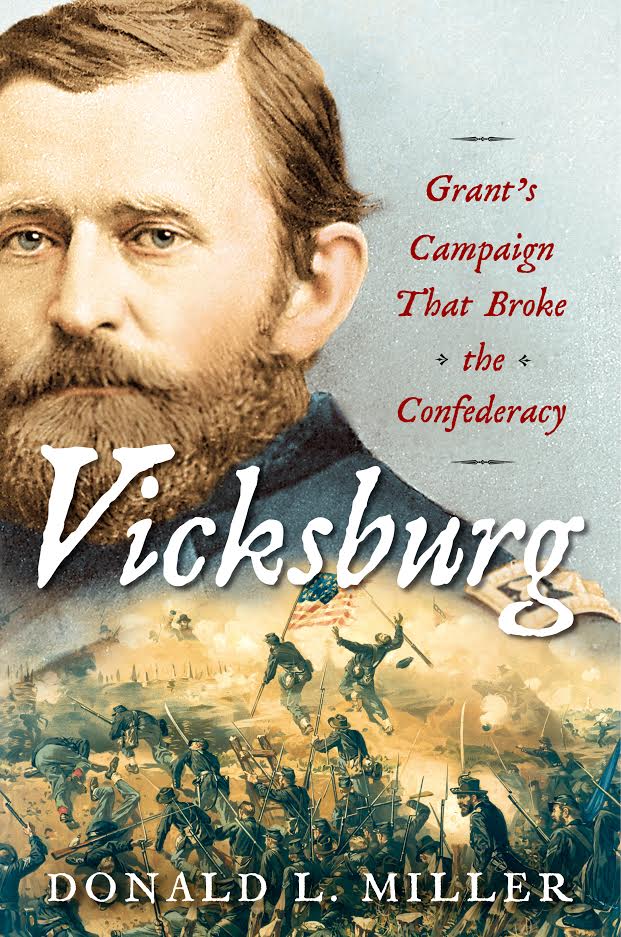By Jim Woodrick. Special to the Clarion-Ledger Sunday print edition (October 27)
 On May 1, 1863, Ulysses S. Grant’s Union Army of the Tennessee crossed the Mississippi River on a flotilla of steamboats, gunboats and barges and landed on Mississippi soil at Bruinsburg. It was the largest amphibious landing by an American army in history and would remain so until World War II.
On May 1, 1863, Ulysses S. Grant’s Union Army of the Tennessee crossed the Mississippi River on a flotilla of steamboats, gunboats and barges and landed on Mississippi soil at Bruinsburg. It was the largest amphibious landing by an American army in history and would remain so until World War II.
More importantly, it was the culmination of months of hard campaigning by the Federals; not the end of the campaign by any means, but certainly the beginning of the end. As Grant would later relate in his memoirs, “All of the campaigns, labors, hardships, and exposures” to that point were for the accomplishment of “this one object”–the capture of Vicksburg and the reopening of the Mississippi.
In his new one-volume history of the Vicksburg Campaign, Donald L. Miller brings the reader to this dramatic moment–and many other twists and turns–not merely as an observer but as a participant through his elegant prose.
Vicksburg: Grant’s Campaign That Broke the Confederacy is first and foremost an in-depth look at U.S. Grant during this critical period of the Civil War. Grant, of course, has been the subject of a great deal of attention from biographers of late, especially Ron Chernow’s celebrated work, and Miller’s book is a welcome addition.
In an almost intimate fashion, he brings Grant to life without heaping too much praise for his military successes or being overly critical of his personal and professional failings (of which there were many) and he ably handles the most controversial aspect of Grant’s character—his reported affinity for alcohol. Along the way, the author introduces a host of interesting characters who played their own parts, both large and small, in the drama that unfolds.
In addition to the increased interest in Grant, there has been, in recent years, a renewed focus on the Vicksburg Campaign, a focus that is both well-deserved and long overdue. For those who wish to delve deeply into the complexities of the movements of armies and logistics, there are many excellent choices available, including Edwin C. Bearss’ monumental three-volume study and the late Michael Ballard’s one-volume treatment.
For the casual reader, however, Miller’s book provides a good overview of a very complex campaign without getting lost in the details and places the Vicksburg story within its proper context. Rather than focusing on minutiae of individual battles, the author uses a wide-angle lens for his campaign study and includes the earliest efforts by Union military authorities to reopen the Mississippi, beginning with a dramatic account of the capture of New Orleans in 1862.
From there, Miller describes Grant’s single-minded focus on achieving his goal of capturing Vicksburg, from his overland march in north Mississippi to the failed expeditions in the twisted bayous of the Mississippi Delta. Throughout, he pays particular attention to the critical role played by the U.S. Navy, an aspect of the Vicksburg Campaign which is all too often overlooked.
Once Grant’s army lands at Bruinsburg, Miller’s prose quickens as the action and the urgency of the campaign swells to a bloody crescendo at Champion Hill, which Miller argues—and convincingly so—was the most decisive engagement of the Civil War. All along the way—whether in the malarial swamps of Louisiana or the hot and dusty trenches at Vicksburg—Miller’s poetic descriptions of the sweeping landscape adds to the reader’s experience.
In the acknowledgements, Miller relates that he first began research on the Vicksburg Campaign in 1997 and, due to circumstances of life and other research projects, did not return to working on the book until 2013. We are indeed fortunate that he kept at it, as the result is a magnificently written and thoroughly readable account of what is arguably the most significant and complex campaign of the Civil War.
Jim Woodrick is the Deputy State Historic Preservation Officer at MDAH, the author of The Civil War Siege of Jackson, Mississippi, and a Licensed Battlefield Guide at Vicksburg National Military Park.
Lemuria has selected Vicksburg: Grant’s Campaign That Broke the Confederacy its October 2019 selection for its First Editions Club for Nonfiction. Signed first editions of Vicksburg are available in our online store.


Comments are closed.